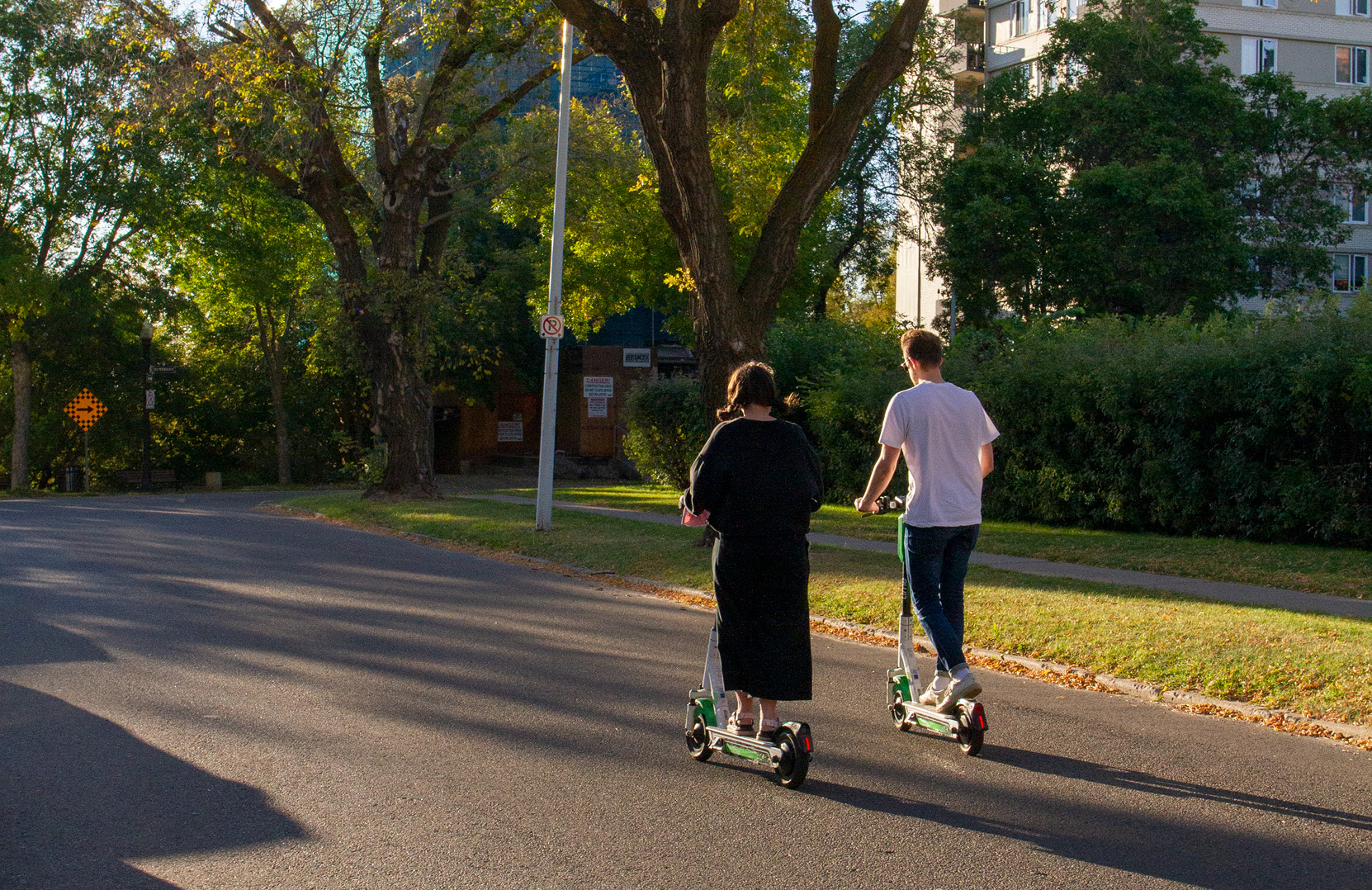If you’ve never heard the term “sharing economy” before, or you only have a guess at what it could mean, you’re in the same boat as a lot of people. Even the people studying this way of looking at our world’s economy lack a concise definition. Experts studying sustainability and sharing economies even have trouble denoting exactly what types of businesses and companies contribute to or use the sharing economy model. This is because the term itself is quite broad, and because humanity depends upon sharing. A quintessential human trait, sharing resources and knowledge was historically necessary for survival. More currently, sharing things like travel tips and material possessions helps to save costs, make a profit, and allow others to experience the world as we see it.
Sharing economies have been around for centuries. Authors Brady Bailey and Sarah Sereda explore sharing economies in-depth in their study “The Sharing Economy: Do e-scooters make the cut?” published in MUSe, MacEwan University’s online journal, in August 2020. Bailey and Sereda explain that sharing economies include the invention and popularity of libraries and universities for sharing knowledge, dating back to ancient times, and modern hotels and taxi services which alleviate costs associated with owning a vehicle and vacation accommodation. As well, they mention the well-known eBay and Craigslist, falling under the umbrella as ways to connect people to share goods and services without having to buy new products. Bailey and Sereda then go on to discuss the obvious present-day Uber, Airbnb, and e-scooter services, all of which are classified as components of a sharing economy. It’s clear from this study that these business ideas are examples of new and resourceful ways of cutting down on waste and lowering consumer costs to appeal to wide customer bases.
Many Edmontonians have found themselves enjoying the benefits of Lime brand e-scooters as useful transit alternatives, cutting down on traffic in busy areas of the city and offering quick and easy-to-use rides to their destinations. Megan Oh uninsured her car in October of 2019 after moving downtown because she found the scooters so convenient and cost-efficient.
“This year, I probably use the scooters a couple of times a week,” Oh says. “I think they’re very affordable. I always use them as my transit service because I’m poor.” This is a statement that we all, especially students, can relate to.
Cora Desmeules just graduated from MacEwan in April, and she used to use Lime scooters almost every day to get to her classes. “They’re fun to ride, but functional when you wanna get somewhere fast and not worry about parking,” she says of e-scooters.
The term “sustainable” is extremely popular with today’s consumer — both in an economic sense, as everyday life is getting more and more expensive for the average person, and in an ecological sense, as we face looming climate change threats with each passing day.
When she first started seeing the scooters on the streets of Edmonton, Oh was excited about the future they might be hinting at. “I thought, ‘Oh my gosh, we’re all going to convert to these (Lime scooters)!’ Maybe we’ll have less taxis, less cars on the road, you really run with that idea,” she says.
Branding a product or service as sustainable is an almost sure-fire way to attract buyers, as Bailey and Sereda emphasized. However, they closely examined the overall sustainability claims of some of these companies, specifically Lime e-scooters, and discovered some interesting facts that most Lime users, myself included, would not think twice about.
It’s obvious that e-scooters like Lime are a substantially more environmentally friendly way of getting around the city than cars or even buses because they are battery powered and don’t give off any emissions. However, Bailey and Sereda reference a threepillar model that helps determine the true sustainability of a business, based off of Martin Mulligan’s 2014 research, published in an independent study, examining the intersection of economic, environmental, and social categories and their overall impacts on a product or service’s sustainability. Lime scooters have a score within this framework like all businesses do. A high score in all three groups is required for a business enterprise to be truly sustainable in all aspects of the word.
Economically, a business should have high profitability and generate a high level of employment to be considered sustainable. Overall, the scooter study’s surveys showed that users think Lime scooters are quite affordable, and that they are an easy-to-use alternative to other forms of public transit. Little data is available as to the working conditions of Lime scooter employees, but there have been no outstanding public issues as of the time of publication.
The social component centres around the business’ engagement with local and global communities and their ethical practices. Examples of issues with this requirement include legal issues surrounding Airbnb customers, such as instances of stabbings and shootings at parties held on rented properties — such open-invite gatherings are now banned by the company. Uber has had its fair share of legal issues as well, with 2019 data from Uber showing most rides were perfectly safe but that there were almost 6,000 reported cases of sexual assault in the previous year. For the social component to prove sustainable, customers must feel that they can trust the business with their money and their personal safety. Lime scooters don’t have quite the same safety issues, but users do have to enter their banking information and their geographical whereabouts into an app, and there are plenty of people who are wary about that sort of blind trust on the internet.
The most obvious sustainability category, the environmental aspect, is the most interesting in relation to Lime scooters. Although they are zero-emission vehicles, and they help to reduce congestion in high-traffic areas, the production of the scooters themselves actually has highly negative environmental impacts. According to Bailey and Sereda, the factories where the batteries and frames of the Lime scooters are physically produced are associated with high emission levels. As well, each scooter has to be charged every night to replenish the battery to 100 per cent, and this means that Lime “Juicers” have to run many gas-powered vehicles nightly to collect the scooters, bring them to charging stations, and then return them to drop-off locations. The study found that this transport of the scooters results in a significant offset of their environmental benefits. As well, the study notes that the life expectancy of each physical scooter seems to be anywhere from a month to two years, which means that Lime needs to produce more and more scooters each year to keep up with their demanding popularity.
These results are likely not what the average Lime user expects to be the reality from a service and product that is generally thought to be a sustainable option.
When given this information, Desmeules was quite surprised. “(That) definitely makes me feel less inclined to use them. I also think that this should’ve been made common knowledge. In my head it always seemed like a small scooter that runs on a battery is less harmful to the environment than an actual car,” she says.
It’s quite interesting to see that some of the amenities available today are not really as sustainable and cost-effective as we think when we look at the bigger picture. Zipping around on Lime scooters and ride-sharing with Uber is definitely better for the environment and for your wallet than owning a car, but we do have to take into account the different aspects that affect sustainability and keep working towards finding the best way to share with each other in order to truly make an impact.





0 Comments